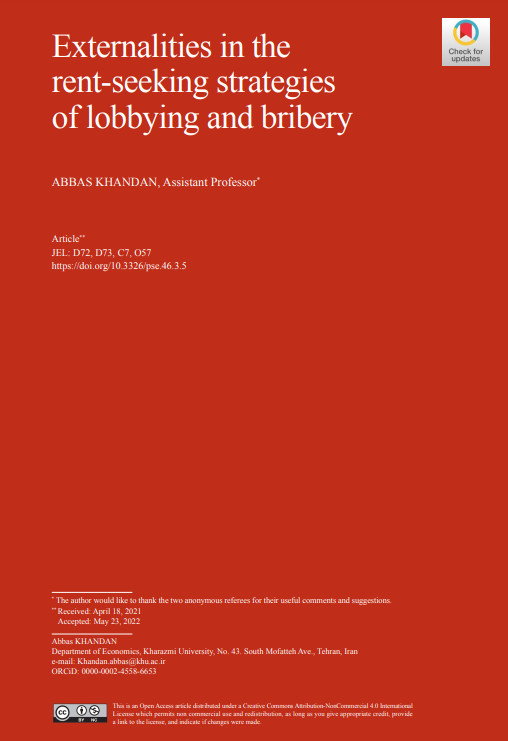Externalities in the rent-seeking strategies of lobbying and bribery
DOI:
https://doi.org/10.3326/pse.46.3.5Keywords:
lobbying, bribery, congestion gamesAbstract
Studies investigating the relationship between lobbying and bribery are limited and contradictory. Some studies regard lobbying and bribery as substitutes while others consider them complementary strategies. Using congestion games this study attempts to clarify the externalities present in these rent-seeking strategies which generate complementarities between them. Lobbying cost-sharing and cooperation through business associations and congestion in benefits from competitive bribery are important sources of externalities. The theoretical model is then investigated empirically. The results indicate that lobbying and bribery are complementary strategies. However, as countries grow, lobbying will be used more intensely. The results also show that there is a positive externality in collective lobbying so that firms that cooperate can save on lobbying costs. There are also externalities in competitive bribery. The results show that the effects of social and legal punishments of bribery are considerable but become less severe as corruption becomes more widespread.

Downloads
Published
How to Cite
Issue
Section
License
Copyright (c) 2022 Abbas Khandan

This work is licensed under a Creative Commons Attribution-NonCommercial 4.0 International License.








